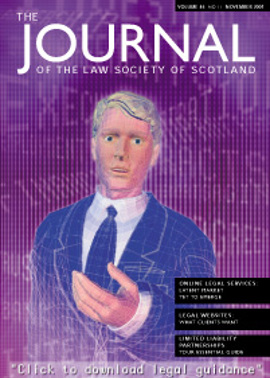In-house lawyers challenge on legal privilege
In a case to be considered by the European Court of Human Rights in Strasbourg, the question of whether EC competition procedure is in conflict with the European Convention of Human Rights has been raised.
The case puts in the spotlight a number of fundamental issues of European law, including legal privilege for in-house counsel.The Senator Lines v EU Member States case is principally concerned with the right to a fair hearing under article 6 of the European Convention on Human Rights. It result from a decision taken by the European Commission to impose a fine on the Senator Lines company for breach of EC competition rules and refusing to suspend the fine until the full case had been heard by the Court of First Instance of the EU. Senator Lines claimed that payment of the fine would have led to the insolvency of the company, and argued that its imposition without the opportunity for judicial examination of its appropriateness amounted to violation of article 6, as it deprived the company of a right of judicial recourse.
The company thereafter raised an action challenging the decision in Strasbourg. The decisions of the EC institutions are presently not challengeable under ECHR, thus the case was brought against the individual Member States.
Article 6
Article 6 of the European Convention on Human Rights enshrines the right to a “fair trial”, which is often applied in the context of a criminal hearing, but it also applies to the “determination” of “civil rights and obligations”. Article 6 (1) states that “everyone is entitled to a fair and public hearing within a reasonable time by an independent and impartial tribunal established by law”. Articles 6 (2) and (3) create additional rights in relation to criminal charges, such as the presumption of innocence and various rights regarding the conduct of a defence.
Interventions
The European Court of Human Rights has allowed the intervention of two bodies with an interest in this area, the European Company Law Association (“ECLA”) and the Council of the Bars and Law Societies of the European Union (“CCBE”).
ECLA is the confederation of the national associations of company lawyers in Europe. Recognition in Community law of legal privilege for communications with in-house counsel is one of ECLA’s major objectives. In pursuit of its particular concerns in this area, the Association has argued in its intervention in this case that as the rights of the defence are more limited under EC competition procedure than those enshrined by the Convention, these rights are not sufficiently safeguarded in Community law. This is particularly the case in relation the failure to recognise legal privilege as applying to in-house counsel – although the European Court of Justice has held in the past that legal privilege applies to communications between external legal counsel and their clients. ECLA also argue that the investigatory powers of the Commission under EC competition rules violate the right not to self-incriminate, and that the system of imposition of fines which must be paid prior to the decision of the Court, infringes the presumption of innocence.The high level of fines imposed in competition cases in effect bring them into the realm of criminal cases, which are afforded greater protection under the Convention proposals for the reform of EC competition law are also contrary to Article 6.
The CCBE represents the Bars and Law Societies in the EU and EEA. It broadly supports the applicants position and also raises the following issues: the fact that there is no direct redress for infringement of human rights by EC institutions is a serious lacuna, specifically where there is still the possibility that the ECJ may differ in its interpretation of the Convention from the Strasbourg Court.
The CCBE has concerns about the fact that a private party can challenge Acts of the European Union only where that party is the subject of a decision by an institution or can show that they individually and directly concerned by it. Additionally, article 234 references can only be made at the discretion of the national courts.
Next steps
The Senator Lines case has yet to be allocated a date for a hearing but its outcome will be eagerly awaited. It has brought to the fore important issues, touching not only on EC competition law and the rights of the Commission in that field, but also more fundamental issues concerning the inter-relationship between the EC and the regime under the European Convention on Human Rights. Questions such as whether there is a need for a legal basis within the Treaty for the accession of the EU as a whole to the Convention; whether Member States can be held liable for acts of the EU institutions which may infringe the ECHR; whether the Strasbourg Court should have competence to adjudicate on whether EC institutions are securing the protection of fundamental human rights and whether the European Commission a “tribunal” for the purposes of article 6 (1) of the Convention may be considered and pronounced upon at by the European Court of Human Rights.
Additional information
The full text of the European Convention of Human Rights can be found at http://www.echr.coe.int/Convention/webConvenENG.pdf.
ECLA’s website contains further information on the Association’s position on legal privilege and other ECLA projects (www.ecla.org).
Information on the CCBE and its activities can be found at www.ccbe.org.
In this issue
- President’s report
- Appreciation: James Sutherland
- Appreciation: Sheriff Archibald Angus Bell QC
- LLPs fulfil unmet need
- Mixed profits in country firms
- Legal websites: a Scots quair
- Nice website; shame no-one’s ever going to see it
- Latent market still untapped
- Reconciling trade marks with domain names
- Information overload
- Cultivating your competitive edge
- Ownership of files and ancillary matters
- Professional indemnity insurance – not total
- In-house lawyers challenge on legal privilege
- Book reviews






